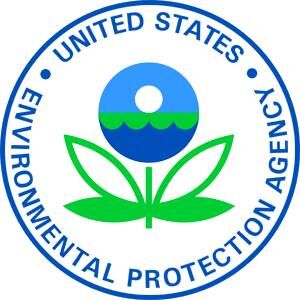The Environmental Protection Agency and the Department of Army released a proposed rule to re-establish the pre-2015 definition of “Waters of the United States,” which farm organization leaders say makes its murkier with less clarity.
The proposed rule would remove the Navigable Waters Protection Rule, which was finalized in 2020, and provided long-overdue certainty and clarity for farmers affected by the scope of WOTUS jurisdiction.
“We are extremely disappointed that this administration is taking us backward by removing a rule that has provided certainty for farmers who are working to feed and power America,” said National Corn Growers Association President Chris Edgington in a news release. “NCGA will continue to work with the agencies and advocate for a WOTUS definition that provides farmers clarity about their obligations under the Clean Water Act.”
The EPA and Army said the proposed rule to re-establish the pre-2015 definition of “waters of the United States,” which had been in place for decades, updated to reflect consideration of Supreme Court decisions. They said the action advances the agencies’ goal of establishing a durable definition of WOTUS that protects public health, the environment and downstream communities while supporting economic opportunity, agriculture and other industries that depend on clean water. This proposed rule would support a stable implementation of “waters of the United States” while the agencies continue to consult with states, Tribes, local governments, and a broad array of stakeholders in both the implementation of WOTUS and future regulatory actions.
“In recent years, the only constant with WOTUS has been change, creating a whiplash in how to best protect our waters in communities across America,” said EPA Administrator Michael S. Regan. “Through our engagement with stakeholders across the country, we’ve heard overwhelming calls for a durable definition of WOTUS that protects the environment and that is grounded in the experience of those who steward our waters.”
“The Army recognizes the importance of our nation’s water resources and the role water plays in our communities across the nation,” said Acting Assistant Secretary of the Army for Civil Works Jaime A. Pinkham. “We remain committed to working with EPA to develop a rule that is informed by our experience and expertise, as well as that of our co-regulators, is mindful of implementation practices, and is shaped by the lived experience of local communities and stakeholders.”
In their joint news release, they said recent court decisions have reinforced the need for a stable and certain definition of WOTUS. The U.S. District Courts for both Arizona and New Mexico have vacated the Navigable Waters Protection Rule. In light of the court actions, the agencies have been implementing the pre-2015 regulatory regime nationwide since early September 2021.
The proposed rule would maintain the longstanding exclusions of the pre-2015 regulations as well as the exemptions and exclusions in the Clean Water Act on which the agricultural community has come to rely.
The National Cotton Council issued a statement in support of the 2020 Navigable Waters Protection Act saying that reverting to a 1980s-era WOTUS rule would be a mistake.
NCC Chairman Kent Fountain stated in a news release that the NWPR needs an opportunity to work because it provides agriculture a commonsense and understandable rule that “not only ensures environmental and human health but protects farmland and the right to conduct farming operations in a responsible and economically sustainable manner with flexibility.”
Many water features had been removed from federal control in the NWPR, including those that contain water only in response to rainfall, groundwater, many farm and roadside ditches, prior converted cropland and stock watering ponds, he said.
“It is incredibly disappointing that cattle producers must once again deal with the regulatory uncertainly and potential for government overreach that comes with the announcement,” said Hughes Abell, president of the Texas and Southwestern Cattle Raisers Association. “No one understands the importance of clean water and land stewardship like cattle producers. It is our livelihood, and we will fight to continue caring for our land and cattle.
“While we oppose the repeal of NWPR, the Texas and Southwestern Cattle Raisers Association will work diligently to ensure the replacement keeps key elements of NWPR. Most notably, any new rule must maintain a traditional definition of navigable water, exclude isolated water features and groundwater, and be easy to interpret by landowners.
The agencies are taking comment on this proposed rule for 60 days beginning on the date it is published in the Federal Register.
For more information on submitting written comment on the proposal or to register for the virtual public hearings on the proposed rule, see www.epa.gov/wotus.
Congress enacted the Clean Water Act in 1972 with the statutory objective “to restore and maintain the chemical, physical and biological integrity of the Nation’s waters.” One of the act’s principal tools in achieving that objective is a prohibition on the discharge of pollutants from a point source to “navigable waters” unless otherwise authorized under the act.
On June 9, EPA and the Department of the Army announced their intent to revise the definition of WOTUS, which they said was to better protect the nation’s vital water resources that support public health, environmental protection, agricultural activity and economic growth.
Dave Bergmeier can be reached at 620-227-1822 or [email protected].
Sign up for HPJ Insights
Our weekly newsletter delivers the latest news straight to your inbox including breaking news, our exclusive columns and much more.

